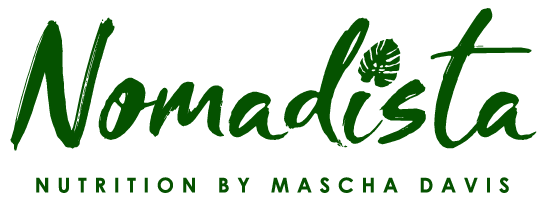I’ve partnered with Illuminate Labs to bring you this post. All opinions are my own.
Did you know that only one out of five herbal supplements contain the listed ingredients, according to an investigation done by New York State? If most manufacturers won’t even bother to get the ingredients listed on the label right, they certainly aren’t bothering with thorough testing for contaminants. Consumer safety is a huge issue with dietary supplements in the U.S., because the market is essentially unregulated.
What Does “Essentially Unregulated” Mean?
The Food and Drug Administration (FDA) requires supplement manufacturers to have accurate labels on their products, but doesn’t have the budget to enforce this before a product hits the market (like they do with pharmaceutical drugs). Supplement manufacturers in the U.S. can go into business with no clearance by any regulatory agency, and can only be fined once damage has already been done. Clearly this isn’t a system designed to protect consumers.
The craziest part is, there aren’t even any set limits for toxic contaminants like lead or mercury! This means that a U.S. supplement manufacturer could produce a product with mercury levels well beyond what’s established to be safe, and not be breaking any rules.
How Do I Know Which Supplements Are Safe?
As a consumer reading this, you’re probably thinking: “If I do want to buy supplements, how do I know which ones to take to prevent the potential health issues associated with unregulated products?” We all know that dietary and herbal supplements can have powerful positive health effects, but the risk/reward ratio simply isn’t favorable if the products may cause harm with toxic contaminants.
The answer is simple: the only way to truly know if a supplement is safe is if the manufacturer will share the test results with you. Ideally these results should come from a third-party laboratory. The third-party (meaning an institution separate from the manufacturing company) has no economic bias to report false results like a manufacturer might with internal testing. Since the third-party institution makes money from reporting accurate test results, it’s much less likely that there will be any falsification of results.
My Recommendation for Safe, Third-Party Tested Supplements
Currently there’s only one company on the market which takes this type of testing very seriously. The company is called Illuminate Labs and they not only contract a third-party, non-profit lab to test all of their finished products, but they go as far as publishing the test results right on each of their product pages so consumers can view the results themselves. They also publish a host of medical studies on each product page showing that the herb is effective for what’s indicated on the label claim.
This company manufactures herbal supplements only. Their product line consists of herbal extracts of Panax Ginseng, Ceylon Cinnamon, Ginkgo Biloba and Ashwagandha.
Panax Ginseng has been used for thousands of years in Asia as a general tonic and mild stimulant. Recent medical studies have shown it to exert positive short-term effects on mental performance.
Ceylon Cinnamon is a different type of cinnamon than what you buy in the store, which is typically Cassia Cinnamon. Cassia, the cheaper type, is high in a toxic compound called coumarin. As concluded in this study, “the levels of coumarins in Cinnamomum Cassia appear to be very high and pose health risks if consumed regularly in higher quantities.” Ceylon cinnamon in extract form, like the supplement sold by Illuminate Labs, is more potent and therapeutic than the spice alone. It has been proven in medical research to help aid healthy glucose and cholesterol function.
Ginkgo Biloba can aid with memory & cognitive function, especially in older adults. One particularly interesting study published in the Journal of Alzheimer’s Disease in 2015 concluded that, at 240mg/day ginkgo biloba extract “is able to stabilize or slow decline in cognition, function, behavior, and global change at 22-26 weeks in cognitive impairment and dementia, especially for patients with neuropsychiatric symptoms.”
Ashwagandha is the most popular anti-anxiety herb on the market. It’s an adaptogen which helps the body cope with stress. Numerous scientific studies have shown ashwagandha extract to be effective against stress, with this meta-study from 2014 concluding that “intervention resulted in greater score improvements (significantly in most cases) than placebo in outcomes on anxiety or stress scales.”
Illuminate Labs uses the European Union contamination limits for dietary supplements as their benchmark since the U.S. doesn’t have any. Their third-party lab partner uses High-Performance Liquid Chromatography (HPLC) to test Illuminate Labs products for potency, which is the most expensive and accurate method of verifying the strength of an herbal extract. They take their third-party testing so seriously that they won’t sell products which don’t meet the testing limits -- in fact, they’re not selling their own ashwagandha from the first round of manufacturing because it didn’t meet third-party testing for potency! It will be re-added once the next batch passes testing.
Should I Be Worried If I’ve Taken Untested Supplements for Years?
You’re likely to be fine, since the quantity of supplements by weight is quite low relative to other foods and food products you ingest. The dose makes the poison, and there is a tiny amount of heavy metals in many foods and drinks. If you’re concerned, you can see a doctor and get a heavy metals panel done. But the key takeaway here is to take supplements which have been third-party tested. If you’re spending money on products to improve your health or well-being, you might as well ensure that those products won’t actively harm you!


